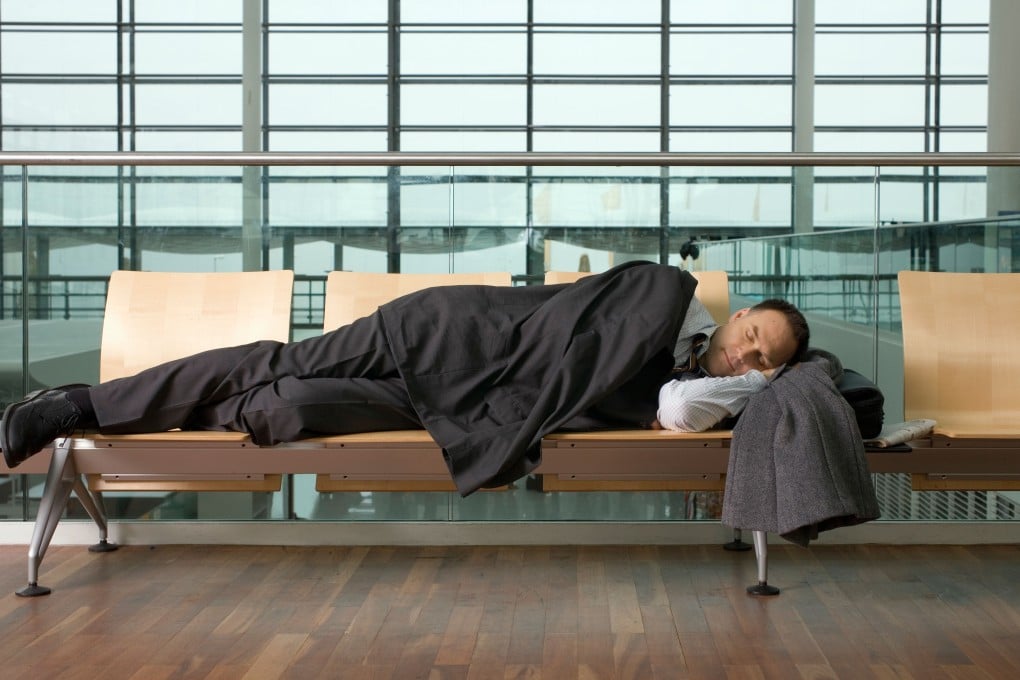Frequent fliers at higher risk of diseases that lead to ageing – what they can do to lower the risk
- Jet lag and regular sleep disruption increase stress and risk of diabetes, heart disease, and high blood pressure, doctor says, and then there’s the radiation
- Frequent fliers should stay at a hotel with a gym, be disciplined about not napping on board, and take a sleeping pill if it helps. An IV drip could also help

Frequent fliers may like to brag about having so many air miles they do not know what to do with them, but all that time in the air comes at a cost to their health. While many are business travellers and have the luxury of being up at the front of the plane, that does not negate the health impacts of regularly zipping between time zones.
Shipping executive Tim Huxley flies from Hong Kong to Europe on business at least one a month.
“As you get older you feel more tired for longer. It takes about five days for me to recover from jet lag now,” says Huxley, 58.
Research has shown that jet lag can switch off genes linked to the immune system, thus raising the risk of having a heart attack or stroke. And long-term chronic jet lag among airline cabin crew has been associated with cognitive deficits including memory impairment.
![Hong Kong-based shipping executive Tim Huxley flies more than 200,000 miles a year. “As you get older you feel more tired for longer [after a flight],” the 58-year-old says. Photo: Tim Huxley Hong Kong-based shipping executive Tim Huxley flies more than 200,000 miles a year. “As you get older you feel more tired for longer [after a flight],” the 58-year-old says. Photo: Tim Huxley](https://img.i-scmp.com/cdn-cgi/image/fit=contain,width=1024,format=auto/sites/default/files/d8/images/methode/2019/08/23/922ab06e-c497-11e9-ad8c-27551fb90b05_1320x770_190844.jpg)
While there have been no studies looking specifically at whether frequent fliers age faster, Dr Nichola Salmond, a general practitioner and owner of Optimal Family Health in Hong Kong, says that frequent fliers face jet lag and chronic sleep loss, which increase the risks for diseases that lead to ageing.
“One of the big effects is sleep disruption on a regular basis, which is linked to a lot of health problems. It definitely affects metabolism and there is an increases risk of diabetes, heart disease, blood pressure issues,” says Salmond.